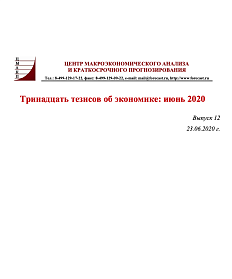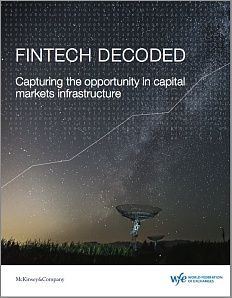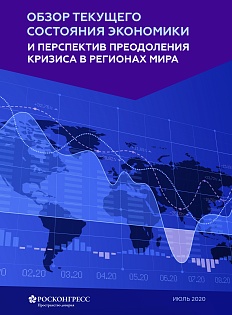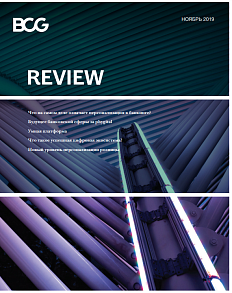Plenary Session II. Self-Regulation, Ethics, and Conduct Supervision: Challenges for the Next Three Years
The speakers emphasized the importance of trust on the financial market and noted that investment in trust management was growing in popularity. Normally, it takes a long time to foster a financial market culture but this process can be accelerated through support, administrative resources, and influence of the regulator. Feasibility of self-regulation on the financial market is yet to be proven, especially as regards supervision. Examples from some jurisdictions show that a self-regulator appointed by the regulator becomes independent and will have to make decisions that might sometimes be uncomfortable. The speakers also commented on the necessity of solving the problem of misselling of financial products.
Small and medium-sized entrepreneurship (SME) funding
Issues related to funding and developing small and medium-sized businesses were explored at Session 7.1: ’Funding Entrepreneurship: A National Priority’.
The development of the SME sector is closely linked with the potential of the economy. The discussion covered a wide range of issues related to SME financing and development, including within the national project and the Bank of Russia’s road map for the development of SMEs funding.
Ensuring access to finance is an essential component of the successful development of the SME sector, but it is not the only one. Financing is mostly a supportive measure. The business environment should be so welcoming that people strive to become entrepreneurs.
The speakers mentioned a marked increase in granting loans to SMEs in the first four months of the year. Within the limits of existing powers, the Bank of Russia strives to support this growth, while allowing for controlled risks.
Banks and regulatory policy on the financial market
A large number of sessions of the Congress were focused on the activities of banks and regulatory policy on the financial market. One of the key discussions was centered on practical aspects of macroprudential policy. It touched upon a wide range of subjects such as housing construction funding, transition to new accounting requirements, and credit institutions operating on the principles of IFRS 9 Financial Instruments. The speakers and experts discussed the results and the prospects of a number of financial market infrastructure projects, including the remote biometric identification platform, the Faster Payments System, the Digital Profile project, the Marketplace platform.
Read more in session summaries:
· Session 1.1: New Approaches to Finance for Housing Construction: Challenges and Opportunities for the Banking and Construction Sectors
· Session 1.2: IFRS 9: Specificities and Results of Implementation
· Session 1.5: Infrastructure Projects for the Financial Market: Initial Results and Prospects
· Session 1.6: Macroprudential Policy: Aims, Means, Results.
Financial Market Professionals
The development of the financial sector is inextricably linked with staff competencies. The first session in this section featured a discussion on the new qualification requirements for financial market specialists (independent qualification assessment at independent qualification assessment centers). Other topics included asset management services, foreign exchange derivatives, regulation and oversight on the securities market, investment consulting and regulation.
Read more in session summaries:
· Session 3.1: New Requirements for Financial Market Specialists
· Session 3.2: Competition for Retail Investors: Brokers and Trustees
· Session 3.3: The Derivatives Market: On the Cusp of Change?
· Session 3.4: Identifying Optimal Levels of Regulation and Efficient Oversight in the Securities Market: Theory and Practice
· Session 3.5: Investment Consulting: Initial Results
· Session 3.6: The Role of Infrastructure in Building a Trusting Environment and Simplifying Investor Access to the Financial Market in the Era of Digitalisation
· Session 3.7: Fair Pricing on the Securities Market.
Collective investments and pension funds
Much interest was aroused by discussions about expanding opportunities for collective investment vs risk management, especially with regard to pension funds.
Speakers touched upon the specifics of activities of retail and exchange-traded funds, as well as open-end and closed-end mutual investment funds. They also examined the factors hindering the investment activity of non-state pension funds, prospects for stimulating competition on the private pension funds market, and business development opportunities for special depositories, and analyzed changes in client preferences in the closed-end fund segment of the collective investment market.
Read more in session summaries:
· Session 4.1: The Investment Fund Market: A Reset
· Session 4.2: Private Pension Funds: Expanding Investment Opportunities vs Managing Risk — Earn or Save?
· Session 4.3: The Special Depository: Keeping in Step with the Times; What Does an Investor Pay for?
· Session 4.4: Private Pension Funds: Competition and Factors Hindering Business Development
· Session 4.5: Growth of Non-State Pensions
· Session 4.6: Risk-Management Tools in Collective Investments: The Abilities of Managers and Expectations of Investors.
Microfinance market
Concerning the prospects of the microfinance market, the panelists discussed credit cooperation and touched upon a range of other topics related to the development of the microfinance market, its role and place on Russia’s financial market, and opportunities for self-regulation and digitalization on the microfinance market. One topic that received particular attention was consumer fraud on the microfinance market.
Read more in session summaries:
· Session 5.1: Credit Cooperation: Pathways Towards Earning Trust and Raising Popularity
· Session 5.2: The Socialisation of Microfinance Organisations: Transforming Business Models through Regulatory Action
· Session 5.3: The Development and Improvement of a Self-Regulation Institution on the Microfinance Market
· Session 5.4: Online Services in the Microfinance Market: Challenges and Growth Prospects
· Session 5.5: Partnership between Credit and Microfinance Organisations: Benefits and Threats to Business and Consumers
· Session 5.6: Consumer Fraud and Borrower Misconduct: Taking Effective Countermeasures.
Insurance market
The main subject of this section was the Development Strategy for the Russian Federation’s Insurance Industry for the period 2019–2021. Other important topics included the current needs of the insurance market, issues with motor third-party liability insurance, favorable conditions for the development of the life insurance segment, healthcare development model devised by the insurance community, implementation of housing insurance legislation, standardization across the industry, and search for new approaches to assessing the financial stability of insurance companies.
Read more in session summaries:
· Session 6.1: A Development Strategy for the Insurance Sector: Perspectives of the Market and the Regulator
· Session 6.2: Motor Third-Party Liability Insurance: A Focus on Customisation
· Session 6.3: The Consumer in the Insurance Market
· Session 6.4: New Approaches to Assessing the Financial Stability of Insurance Companies
· Session 6.5: Life Insurance: Prospects.






